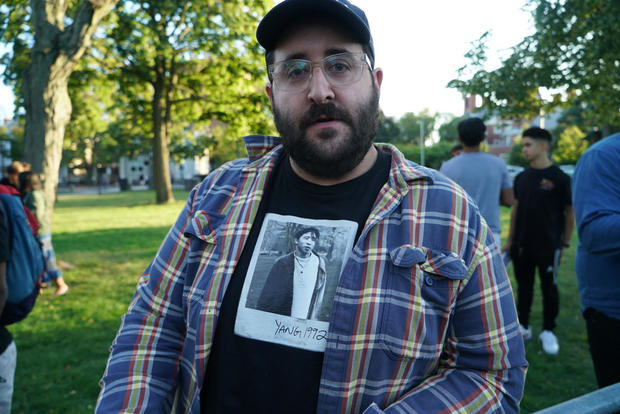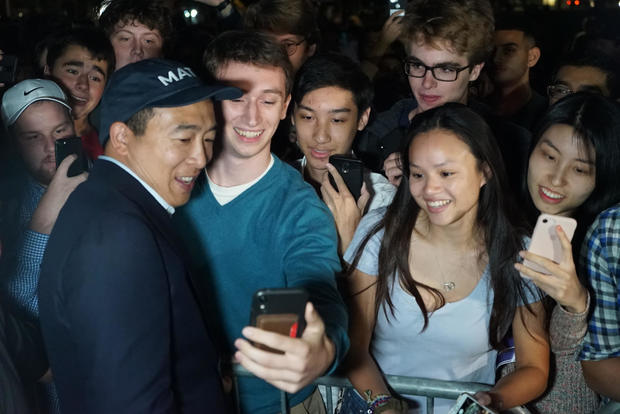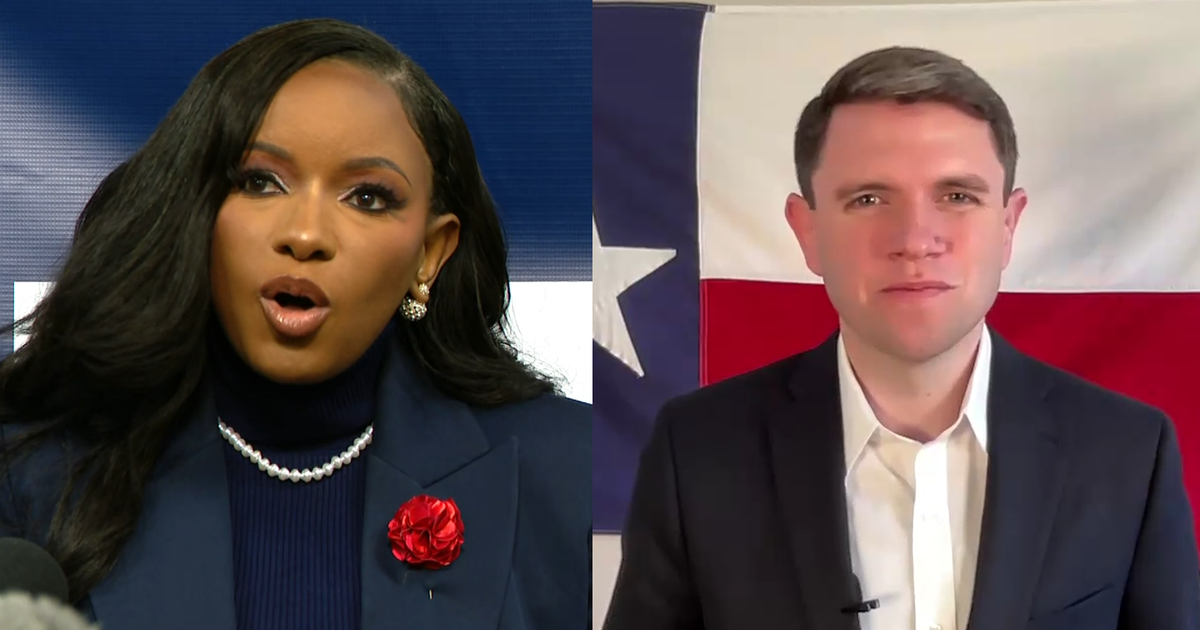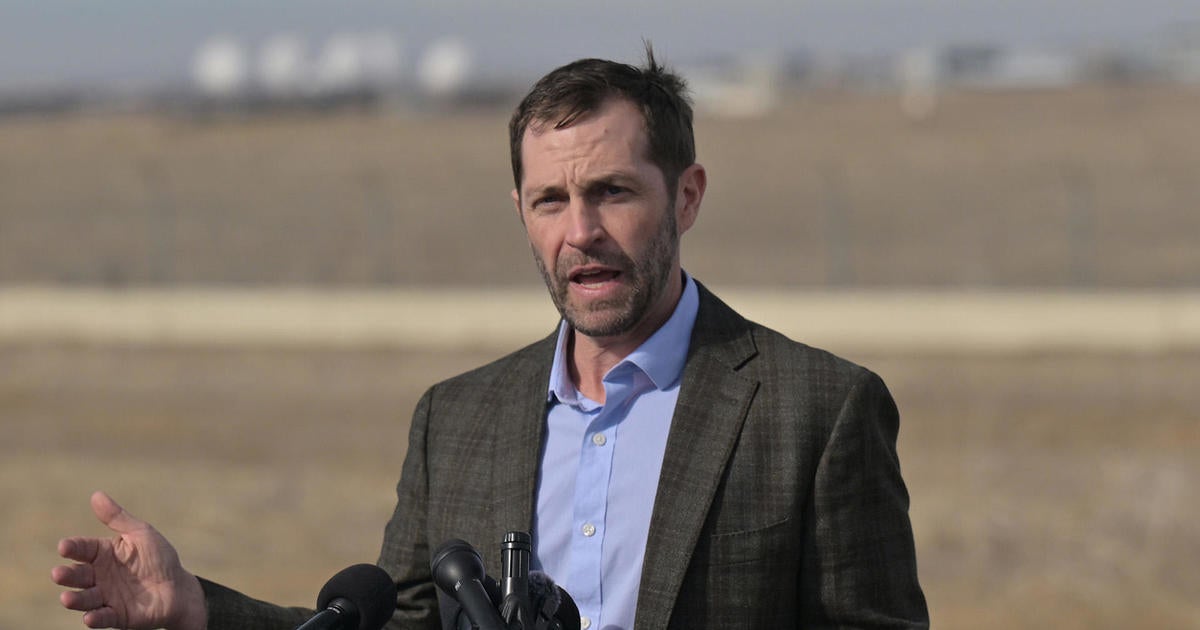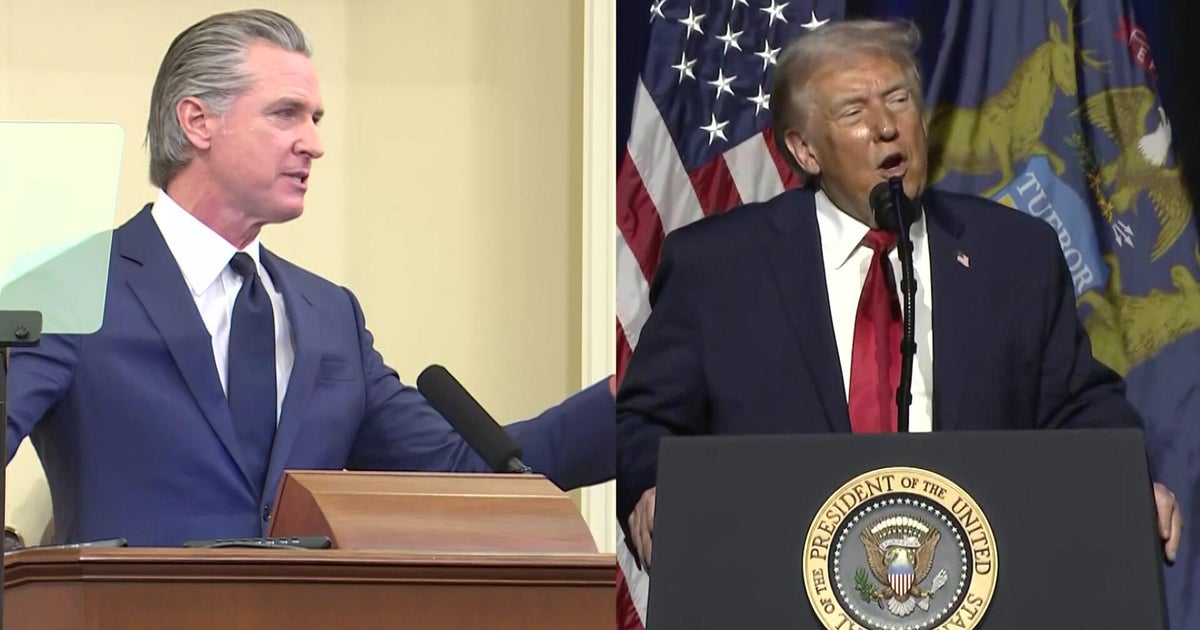For Andrew Yang, New Hampshire is a "homecoming" and a big bet
At the very top of every New Hampshire stump speech, presidential candidate Andrew Yang notes his somewhat tenuous connection to the state: "How many of you know I went to high school in New Hampshire?"
"I went to Phillips Exeter Academy. I graduated in 1992," the 44-year old candidate announced at the 2019 New Hampshire Convention. A few delegates expressed skepticism that Yang's two years at the exclusive, centuries-old boarding school would measure him some sort of leg up in the nation's first primary. Even Yang admits he questioned whether his time at the elite institution might earn him political points.
"When I first showed up here in New Hampshire, I was like, does that count?" Yang chuckled to college students at Plymouth State University. "They were like, 'Oh yeah, that counts.'"
Yang, formerly an obscure Manhattan businessman with no political experience, is doing everything he can to ensure a strong showing in New Hampshire. That includes turning up as often as he can.
While other 2020 contenders have slashed New Hampshire based staff and travel in favor of Iowa, Yang has spent more days campaigning in the Granite State than any other presidential candidate this year, with more than 70 appearances in 2019 alone. He placed a "mid-six figure" television ad buy in the state on Thursday, rolling out two new spots.
Last month, the political upstart rendered a bold declaration about his campaign to nearly one hundred witnesses in a packed coffeehouse: "If this does not come out of New Hampshire, it dies."
Candidates are usually circumspect when it comes to setting goalposts. But Yang, an unusual candidate in just about every sense, willingly admits he needs to score an early "surprise" to remain in the race. "My campaign has to demonstrate a ton of strength in one of the first three states, realistically one of the first two states in order to successfully catch fire," he told CBS News last month in Plymouth.
The long-shot Democratic hopeful filed for the New Hampshire primary at the State Capitol last Friday, formally adding his name to the official ballot. He recalls voting for the first time in the 1992 New Hampshire primary, pulling the lever for Bill Clinton, who overcame a sex scandal to grab second place and declare himself "the comeback kid."
Clinton was one of nine presidential candidates who visited the Phillips Exeter campus that year, but Yang has no memory of ever seeing him or any of his opponents. He does, however, remember listening to The Smiths, his inconsistent performance as King Herod his high school's rendition of "Jesus Christ Superstar," the departure of his favorite history teacher, picking between Stanford and Brown for college, and earning near-perfect board scores.
Conversations with half a dozen of Yang's high school friends reveal a rebellious teen, albeit the kind that still aces exams and arrives early to Glee Club. "Andy" was "low-key funny," wore a black trench coat, and openly hated school.
"James Dean was like a rebel without a cause, right? He didn't give a s***," high school friend and close confidant Fiona Singer says. "He's a rebel with a cause, for sure. The free-thinking kind."
So while he didn't fit the mold of a future presidential hopeful, multiple classmates concede he was the kind of person who might one day introduce the idea of a $1000-a-month stipend for every adult American on a national stage. His "Freedom Dividend," a form of universal basic income, remains the centerpiece of his campaign. And he chose the Fassi family of New Hampshire for his initial test run of the program, agreeing to give them $1,000 a month for one year out of his own pocket.
Handing over the filing fee for the New Hampshire Primary to Secretary of State Bill Gardner last week, Yang quipped the $1000 check was "very fitting."
"We just think we have a natural home here in New Hampshire," Yang told CBS News in September after shooting hoops on the second floor of an abandoned Concord gymnasium with local celebrity Luke Bonner, a onetime NBA hopeful. "On a personal level, I just love spending time here. The voters here are smart, independent, and I went to high school in the state. So it feels a little bit like a homecoming."
At a Concord eatery down the road a few weeks ago, Yang reminisced about his very first "homecoming."
"I was here in this cafe in April 2018. About a year and a half ago. I think that was the first visit to New Hampshire," he told several dozen voters, craning their necks for a glimpse of the candidate. "I have to say, the group is bigger. More MATH hats."
Yang's "MATH" campaign slogan, which stands for "Make America Think Harder," plasters his official-branded baseball caps. Hat sales have raised $1.2 million for the campaign, accounting for approximately 8% of all fundraising revenue.
At small gatherings, Yang moves efficiently through selfie-lines. He high-fives reporters tasked with covering his increasingly mainstream presidential bid. "Are you guys assigned to cover my campaign?" he asked a group of embedded journalists in Nashua following a pub meet-and-greet during his 20th visit to the early voting state. And his call-and-response laden campaign stump has grown louder, with more voters filling in the blanks.
"What is the oil of the twenty-first century?" Yang asked a packed pub in Peterborough last month. "Technology!" the audience bellowed in unison.
Yang's best piece of campaign trail advice, he says, came from New Hampshire Democratic Chair Ray Buckley who told him to prioritize having fun. That "fun," Buckley says, has earned him "a presence" in New Hampshire.
"He worked his heart out," Buckley told CBS News. "You know, obviously it's paying off."
And while Yang is yet to make the December Debate stage, both of his qualifying polls thus far come from New Hampshire, including an October CNN Poll that shows Yang tied for fifth, with 5% of support, up from 1% in July. His favorability rating, meanwhile, rose 19 points to 36% in three months. That's not enough to score delegates, but it still merits attention in a crowded field of current and former lawmakers, including a few household names.
Devoted Yang supporters, dubbed the "Yang gang," pride themselves in converting their friends and family, a process that turns the candidate's name into a verb. "We've yanged the whole family," former Trump supporter Russell Peterson boasted at a campaign stop in Boston.
A plurality of New Hampshire voters, or about 42%, are independents who can vote in either party's primary. This factor helps make the primary's outcome notoriously hard to predict some years, and it's where Yang's team sees their opportunity to defy expectations.
"We get young voters, first time voters, people disconnected with the system. Andrew has such an unusual background relative to most candidates," said former New Hampshire gubernatorial candidate and senior adviser to the Yang campaign Steve Marchand. Emphasizing support from college students, former Sanders' voters and disaffected Trump supporters, Marchand stressed, "The kind of coalition we build is different."
Building a New Hampshire state team to match that coalition has proven difficult. While the campaign originally hoped to recruit upwards of 65 full time staff by the end of October, they wound up with just under two dozen. Bernie Sanders, meanwhile, boasts 90 staffers and 13 field offices, while Yang's New Hampshire team currently occupies 3 field offices.
"It's not a lack of resources," Marchand says, pointing to the $10 million the Yang campaign fundraiser last quarter. "It's a challenge of how fast can you move people through this pipeline."
Marchand continues, "We literally have offices that are going to be open next week. We're actively trying to hurry up and get the regional field directors to fill them. We have the offices faster than we have the field directors coming."
Yang, who boasts frequently about his mathematical abilities, is oddly specific about the number of voters he needs. "To give you an order of magnitude, you're looking at something like 60,000 voters would put you in the top 2 or 3, in all likelihood, in New Hampshire," he said recently at a rally in Boston.
"If we get 60,000 people on board with our message in New Hampshire, then imagine the headlines in February of 2020."
Sarah Ewall-Wice contributed to this report

